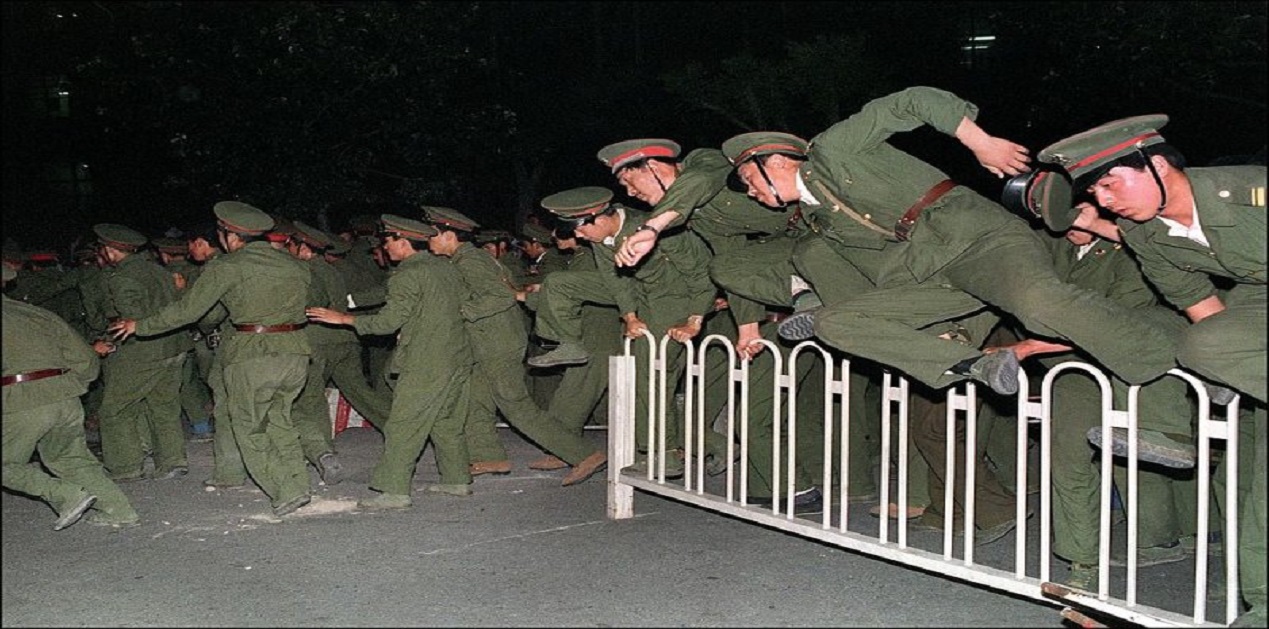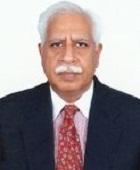China's People's Liberation Army (PLA) is the sword arm of the Chinese Communist Party (CCP). Its recruits swear an oath of loyalty to the Party. The evening that Xi Jinping took over China’s top three positions of General Secretary of the CCP Central Committee (CC), Chairman of the Central Military Commission (CMC) and China's President, he convened an enlarged meeting of the CMC where he declared that henceforth the single determining criteria for promotion for PLA personnel would be their political reliability.
With the fading of ‘Long March’ veterans, all of whom commanded respect in the PLA because of their military experience, the CCP leadership comprised party apparatchiks with no military background and they began keeping a closer eye on the PLA. Particularly after Deng Xiaoping's demise, CCP CC General Secretary Jiang Zemin and his successor, Hu Jintao, began focussing on political discipline in the PLA and incrementally strengthened the authority of the PLA’s Political Commissars. Chinese President Xi Jinping continued this trend and the Political Commissars today have a veto on the promotion of regular PLA field officers and even exercise disciplinary authority over troops.
The leadership closely monitors the PLA for any hint of wavering in political ideology and signs of dissatisfaction among the veterans and demobilised soldiers. They are apprehensive that dissatisfaction could easily spread to serving PLA personnel. Concern about diffusion in loyalty to the Party increased since 2012 following the calls by Chinese intellectuals, academics and “liberal” elements for separating the army from the Party and making the PLA an army of the State. Xi Jinping’s view is that by placing the army under the State the Soviet Union had "disarmed" the Communist Party of the Soviet Union (CPSU) which was an important factor contributing to its downfall.
There are indications recently that the CCP leadership apprehends that attempts by “hostile” Western powers to instigate a “colour revolution” and delink the PLA from the Party could spread in the PLA.
An article in a publication of the Chinese Academy of Social Sciences (CASS) pointed to concerns about the ability of younger PLA officers and soldiers to withstand the online onslaught on ideology and efforts to separate the army from the Party. The South China Morning Post separately disclosed that PLA instructors and recruiters are finding it difficult to train the “newer breed of soldier”, some of whom even dared to challenge superiors when they were not happy. It added that physical fitness is another tough challenge for the PLA since it began recruiting students.
An article by Ren Long and Lin Wenjie of the Political College of National Defense University and the Joint Logistics Support Force Longyan Comprehensive Warehouse Support Team respectively, was published in 'China Social Science News' (Issue 2169, May 20, 2021), a publication of the Chinese Academy of Social Sciences (CASS). In the article they disclosed that there are serious concerns about the PLA rank and file adhering to the policy of the Party's absolute leadership over the Army. Asserting that "the party’s absolute leadership over the army is the fundamental principle of our party’s army building and ruling the army", they wrote "at present, with the firm pace of strengthening the army and rejuvenating the army, grassroots construction has reached a new historical starting point, and profound new changes have taken place in mission requirements, construction connotation, daily operation status, troop organization, composition of officers and soldiers, and the external social environment. This has brought new challenges to the party's absolute leadership over the army taking root at the grassroots level”.
The authors stressed that “Only by adhering to the party's absolute leadership of the army and extendingit uninterruptedly down the line to the grassroots level can we ensure that the majority of officers and soldiers can align themselves in the face of severe tests, fulfil their missions in complex struggles, and continuously enhance the party's "direct power" of absolute leadership over the army." The article continued: "To be strong, the grassroots level must first be strong politically. The officers and soldiers of the new era generally lack the training in the severe and complex environment and the baptism of blood and fire on the battlefield. They often lack understanding and mastery of the party's absolute leadership over the military, and coupled with the extremely deceptive political propaganda of the hostile forces, they should be more effective; the soul of the disciplined army".
The article emphasised it is important "to clear out the fog of thought”. It quoted President Xi Jinping as pointing out that “some Western countries are stepping up to instigate "colour revolutions" in our country, stepping up the implementation of online "Cultural Cold War" and "political genetic modification" projects in an attempt to root out our military officers and soldiers and pull the military out of the party banner. The challenges we face in the field of ideology and political security are very serious. To this end, we must first strengthen positive publicity and guidance of public opinion. Consolidate and strengthen the mainstream ideological and public opinion, speak politically with a clear-cut stand, speak with reason, refute fallacies with rational argument and evidence, and guide officers and soldiers to grasp correct standpoints and viewpoints. Second, we must strengthen the system's self-confidence in the comparison between China and foreign countries. Looking at the world from the "Arab Spring" to the "Arab Winter"... The so-called process of "democratization" in the West has brought about long-term turmoil and war; this kind of hardship, from small to large, from weak to strong, from victory to victory, the most fundamental thing is to always uphold the party's absolute leadership over the army. Finally, we must stick to the main position of online public opinion. As young officers and soldiers of the "media generation", they will inevitably be involved in the struggle of public opinion. This urgently requires us to change our minds, carry out online struggles like a war, and continuously strengthen the ability of officers and soldiers to resist the erosion of social corruption and the infiltration and destruction of hostile forces."
Expressing doubts about the political reliability of the younger officers and soldiers in the PLA and recommending enhanced emphasis on ‘educating’ the personnel, the article particularly warns that they could be targeted by the adversary through online propaganda.
Such a candid article on ideological weakness in the PLA has not been noticed for quite some time. The last was a Liberation Army Daily article on June 17, 2012, which for the first time raised the issue of factional “sub-loyalties” in the PLA. Promptly thereafter consecutive annual political education campaigns have been launched throughout the PLA. These continue. Between 2011-2013, a number of intellectuals, university professors and “liberal” Chinese economists were noticed advocating ‘new liberalism”, calling for political reform and arguing that the PLA should be an army of the State and not subservient to the CCP. The CCP and PLA leadership were troubled by such ‘hostile’ foreign-inspired propaganda.
Coincidentally, the South China Morning Post published a report (May 30) suggesting that the new, younger recruits were qualitatively different from their predecessors. It quoted Zhou Chenming, a researcher from the Beijing-based Yuan Wang military science and technology think tank, as saying “Military instructors found the strict and dogmatic training modes applied in the last century didn’t work for the more individual young soldiers born in the 21st century. Some even dared to butt against and challenge superiors when they were not happy. The military was forced to adjust”. It added that the PLA Daily had disclosed thatafter protests by young soldiers against a ban on mobile phones, the PLA had to lift its restrictions in 2015!
A major reason for these concerns are that with the PLA moving towards becoming a technology-based armed force, in 2001it introduced a focus on recruiting high school and college graduates. The number of such educated recruits has been steadily increasing. Data from China’s Ministry of Education and Xinhua News Agency reveals that: in 2016, the total number of college students enlisted in the Army were 1.02 million; in 2017, the total number of enlisted college students was 1.07 million, an increase of 57,000 or 5.58% over the same period in 2016; in 2018, their number rose to 1.2 million; and in 2019, there were a total of 1.24 million college students enlisted in the Army. The PLA Military Academies also enrol students and in 2018 enrolled 30,500 students. Persons with a college background and high school graduates currently constitute the largest single source of recruits. Senior PLA echelons are concerned that these recruits might have got influenced or imbibed “liberal” ideas from their teachers and professors.
With the visibly rising concern since April about the US and West attempting to topple the CCP through a “colour revolution, the Chinese leadership has been taking steps to assuage any dissatisfaction among PLA soldiers and the veterans.
On May 20, the Liberation Army Daily published an article by a member of PLA Unit 31006 captioned 'Party members must enhance their sense of honour'. It said "The sense of honour of a party member is a sense of pride and belonging to oneself as a member of the party organization, and is a concentrated expression of the party spirit of a party member". The unnamed author spoke of the inspiration gained from "the firm belief of the revolutionary ancestors” and urged soldiers to emulate “their infinite loyalty to the party” and the way they cherished “the honourable title of "communist".
As part of these efforts, Politburo member Sun Chunlan visited Shandong on May 25, when she met the veteran soldiers and praised their spirit. She pointed out that Shandong province has been “a large source of troops” and has “always had a glorious tradition of supporting military superiors”. Praising the contributions of veterans, Sun Chunlan asserted that “it is necessary to give importance to the superior role of military personnel, combine the study and education of party history, tell the red revolution by instilling red genes and guide the majority of veterans to listen to and follow the party, and better cultivate and practice the core socialist values”.
Guo Shengkun, Politburo member and Secretary of the powerful Central Political and Legal Affairs Commission which oversees China’s security apparatus, also travelled to Shandong around the same time and visited the East China Revolutionary Martyrs Cemetery and Yimeng Revolutionary Memorial Hall. He insisted that “red resources should be used to carry out the study and education of party history, to inspire the powerful spiritual power of political and legal police officers to do their duty for the party and contribute to the people.”
The appearance of such articles confirms the Chinese leadership’s anxieties about efforts by the US and West to instigate a “colour revolution” and weaken ideological commitment in the PLA. It is likely that Xi Jinping could reinforce the ‘study campaign on Party History’ underway in the PLA by sending teams to ascertain the political reliability and loyalty of PLA personnel.
(The paper is the author’s individual scholastic articulation. The author certifies that the article/paper is original in content, unpublished and it has not been submitted for publication/web upload elsewhere, and that the facts and figures quoted are duly referenced, as needed, and are believed to be correct). (The paper does not necessarily represent the organisational stance... More >>
Image Source: https://api.time.com/wp-content/uploads/2019/06/tiananmen-pla-soldiers.jpg?w=800&quality=85










Post new comment